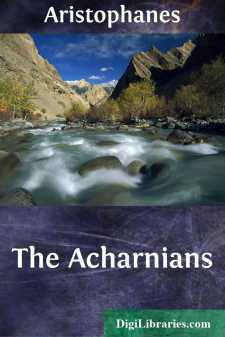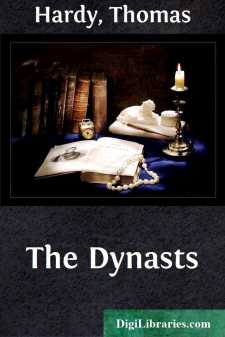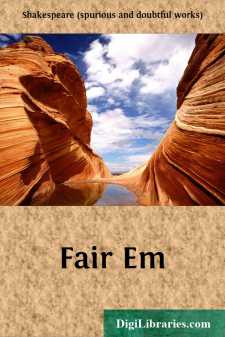Drama Books
Sort by:
by:
Aristophanes
INTRODUCTION This is the first of the series of three Comedies—'The Acharnians,' 'Peace' and 'Lysistrata'—produced at intervals of years, the sixth, tenth and twenty-first of the Peloponnesian War, and impressing on the Athenian people the miseries and disasters due to it and to the scoundrels who by their selfish and reckless policy had provoked it, the consequent...
more...
by:
Thomas Hardy
The Spectacle here presented in the likeness of a Drama is concerned with the Great Historical Calamity, or Clash of Peoples, artificially brought about some hundred years ago. The choice of such a subject was mainly due to three accidents of locality. It chanced that the writer was familiar with a part of England that lay within hail of the watering-place in which King George the Third had his...
more...
by:
Royall Tyler
THE 'Contrast' was the first American play ever performed in public by a company of professional actors. Several plays by native authors had been previously published, the more noteworthy being the 'Prince of Parthia,' a tragedy by Thomas Godfrey of Philadelphia, which was probably written, and was offered to Hallam's company in 1759 (but not produced), and was printed in 1765,...
more...
ACT I. [Enter William the Conqueror; Marques Lubeck, with a picture;Mountney; Manville; Valingford; and Duke Dirot.] MARQUES.What means fair Britain's mighty ConquerorSo suddenly to cast away his staff,And all in passion to forsake the tylt? D. DIROT.My Lord, this triumph we solemnise hereIs of mere love to your increasing joys,Only expecting cheerful looks for all;What sudden pangs than moves...
more...
CAST Jim Weston A young man and the town bully (A Methodist) Dave Carter The town's best hunter and fisherman (Baptist) Joe Clarke The Mayor, Postmaster, storekeeper Daisy Blunt The town vamp Lum Boger The Marshall Walter Thomas A villager (Methodist) Lige Moseley A villager (Methodist) Joe Lindsay A villager (Baptist) Della Lewis A villager (Baptist) Tod Hambo A villager (Baptist) Lucy Taylor A...
more...
by:
George Colman
JOHN BULL. ACT THE FIRST. SCENE I. A Public House on a Heath: over the Door the Sign of the Red Cow;——and the Name of "Dennis Brulgruddery." Enter Dennis Brulgruddery and Dan, from the House. Dan opening the outward Shutters of the House. Dennis. A pretty blustratious night we have had! and the sun peeps through the fog this morning, like the copper pot in my kitchen.—Devil a traveller do...
more...
by:
Stephen Phillips
ACT I SCENE.—The scene is in the Great Hall in the Palace of the Caesars. At the back are steps leading to a platform with balustrade opening on the air, and beyond, a view of the city. [On the right of the stage is a cedarn couch on which CLAUDIUS is uneasily sleeping. On the right is a door communicating with the inner apartments. On the left a door communicating with the outer halls. [XENOPHON is...
more...
ACT I. SCENE I. [1st Cut.] [2nd Grooves.] A Lane near a Village. Afternoon. Enter ARTHUR WALTON and WILLIAM, R.S.E. Arthur. Give me your arm, my feet tread heavily;The sameness of this scene doth pierce my heartWith thronging recollections of the past.There is nought chang'd—and what a world of care,Of sorrow, passion, pleasure have I known,Since but a natural part of this was I,Whose voice is...
more...
On July 1, 1776, the Continental Congress of the American Colonies faced one of the most important crises this country has ever passed through. Upon what happened that night depended the fate of the resolution before Congress which declared that: "These United Colonies are, and of right ought to be, free and independent States, that they are absolved from all allegiance to the British Crown, and...
more...
by:
Francis Beaumont
Actus primus. Scena prima. Enter Uncle and Merchant. Merc. When saw you Valentine? Uncle. Not since the Horse-race, he's taken up with those that woo the Widow. Mer. How can he live by snatches from such people? he bore a worthy mind. Uncle. Alas, he's sunk, his means are gone, he wants, and which is worse,Takes a delight in doing so. Mer. That's strange. Unc. Runs Lunatick, if you but...
more...











